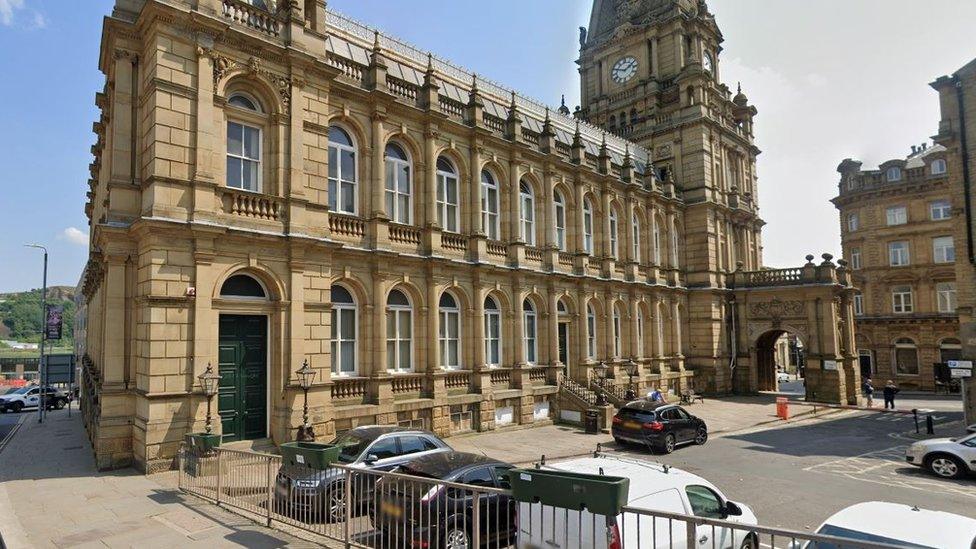Author hits out at 'false economy' of library cuts
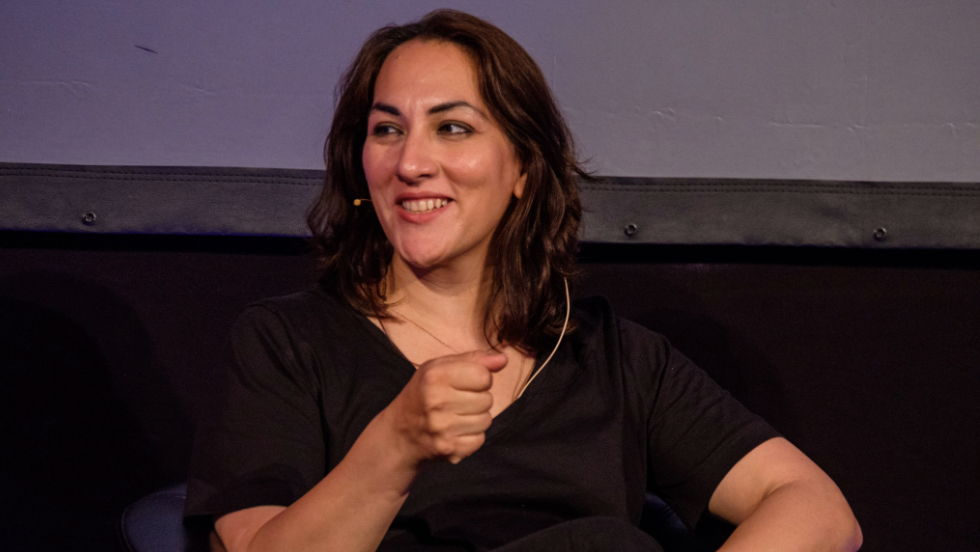
Saima Mir says as a child libraries in Bradford gave her access to "a world I wasn't encountering every day in life"
- Published
A West Yorkshire author has described her horror at new figures showing how library budget cuts have resulted in closures, job losses and reduced opening hours.
BBC research shows Bradford and Calderdale councils have made some of the biggest changes in the country to their library services since 2016.
But crime writer Saima Mir, who grew up in Bradford, said cuts to library services were a “false economy” which could leave people with an “educational and emotional gap”.
A government spokesperson said it recognised the “pressures” faced by libraries and it was “committed to giving stability back to local councils”.
Ms Mir, writer of hit Northern-noir novel The Khan, said libraries deserved increased investment not cuts.
"Libraries are the only place in the world where you can go and access something for nothing and sit there in a quiet room and learn something - and you never have to give any money to the person,” she said.
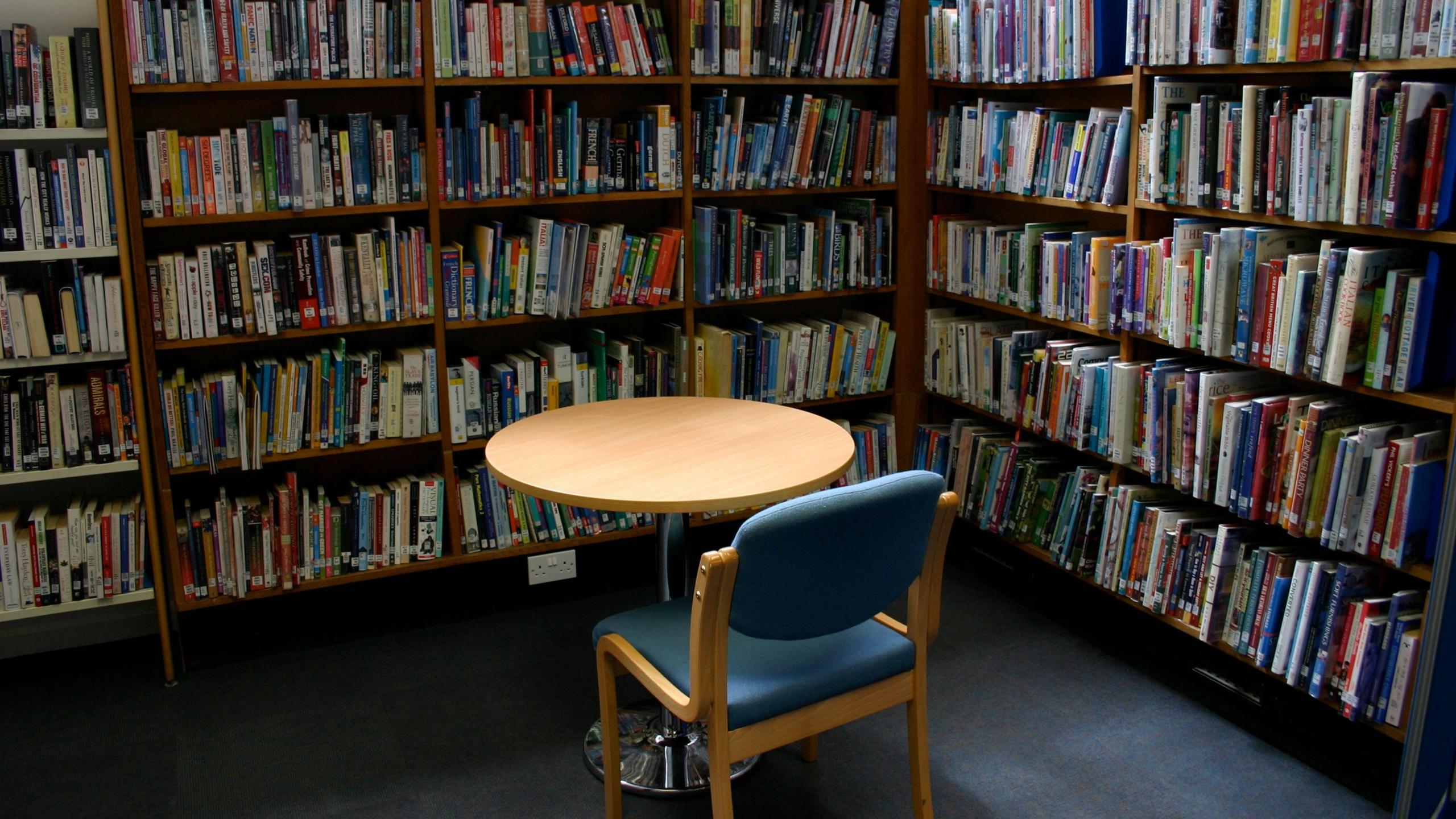
A consultation in Bradford could see cuts to library opening hours
Figures obtained by the BBC show that in 2016, Bradford had 23 council-run and staffed libraries. However, by 2023 that number had shrunk to 12.
Of the 11 libraries which had been moved out of direct council control, nine were now overseen by community organisations with two closing their doors.
Meanwhile, Bradford Council's library staff headcount had shrunk by 25% to 93 employees in the same period, the figures showed.
A consultation due to end on Wednesday proposes more cuts which could see opening hours further reduced, external. It has also led to concerns about potential job losses.
In neighbouring Calderdale, data showed a cut of 10 council-run and staffed libraries from 22 to 12.
Despite requests by objectors, the then-Conservative government said last year it would not intervene.
It said Calderdale Council had not “not breached its statutory duty to provide a comprehensive and efficient library service”.
The BBC figures also showed that while Wakefield and Kirklees councils made some changes to the running of their libraries between 2016 and 2023, Leeds opted to not alter the operations of its 34 libraries.
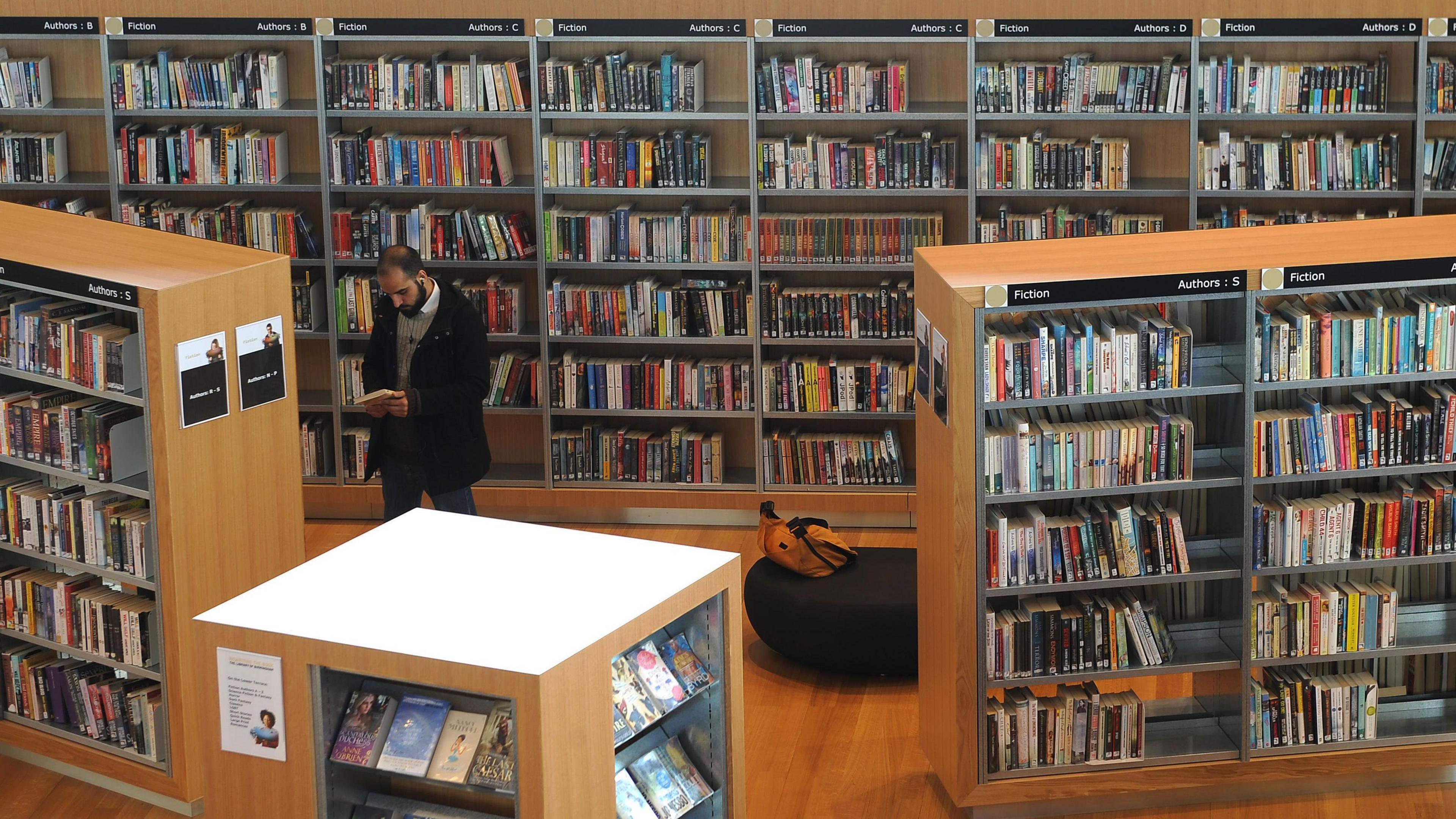
.
Ms Mir said some of her own most life-shaping memories were made at libraries in her home city of Bradford.
"It gave me access to a world I wasn't encountering every day in life," she said.
"We're not going to be able to go into the future and compete with other countries if our children do not have access to stories," she added.
"They are the most powerful things in the world. They change things, they change people, and they show us the way the world can be."
Speaking last month about the latest round of proposed savings in Bradford, senior councillor Sarah Ferriby said the authority's libraries service ran at a low cost and it was aware of how highly people valued the resource.
'Scale of crisis'
Overall, the investigation by the BBC's Shared Data Unit - based on figures from Arts Council England and a series of Freedom of Information requests - found councils stopped running 183 libraries in the UK between 2016 and 2023.
It also found that more than 900 libraries had seen their hours reduced in the same period and in excess of 2,000 jobs were lost.
A previous BBC study found 8,000 library jobs had been lost and 343 venues closed between 2010 and 2016 in the UK.
But the BBC Shared Data Unit’s latest investigation found services have continued to reduce nationwide since 2016 - with the most deprived areas around four times more likely to have lost a local facility than the most affluent.
Isobel Hunter MBE, chief executive of the Libraries Connected charity, said: “These figures lay bare the scale of the crisis facing public libraries and confirm what we have long suspected: libraries are hit hardest in the very areas that need them most."
A government spokesperson said: "Any significant change to library services, including closures or other reductions, must be communicated and consulted on locally by the council."
Listen to highlights from West Yorkshire on BBC Sounds, catch up with the latest episode of Look North or tell us a story you think we should be covering here, external.
- Published3 September 2024
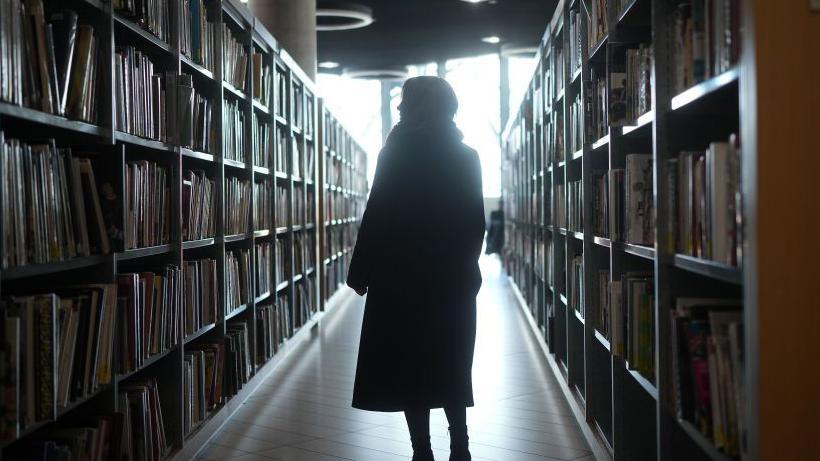
- Published12 July 2024
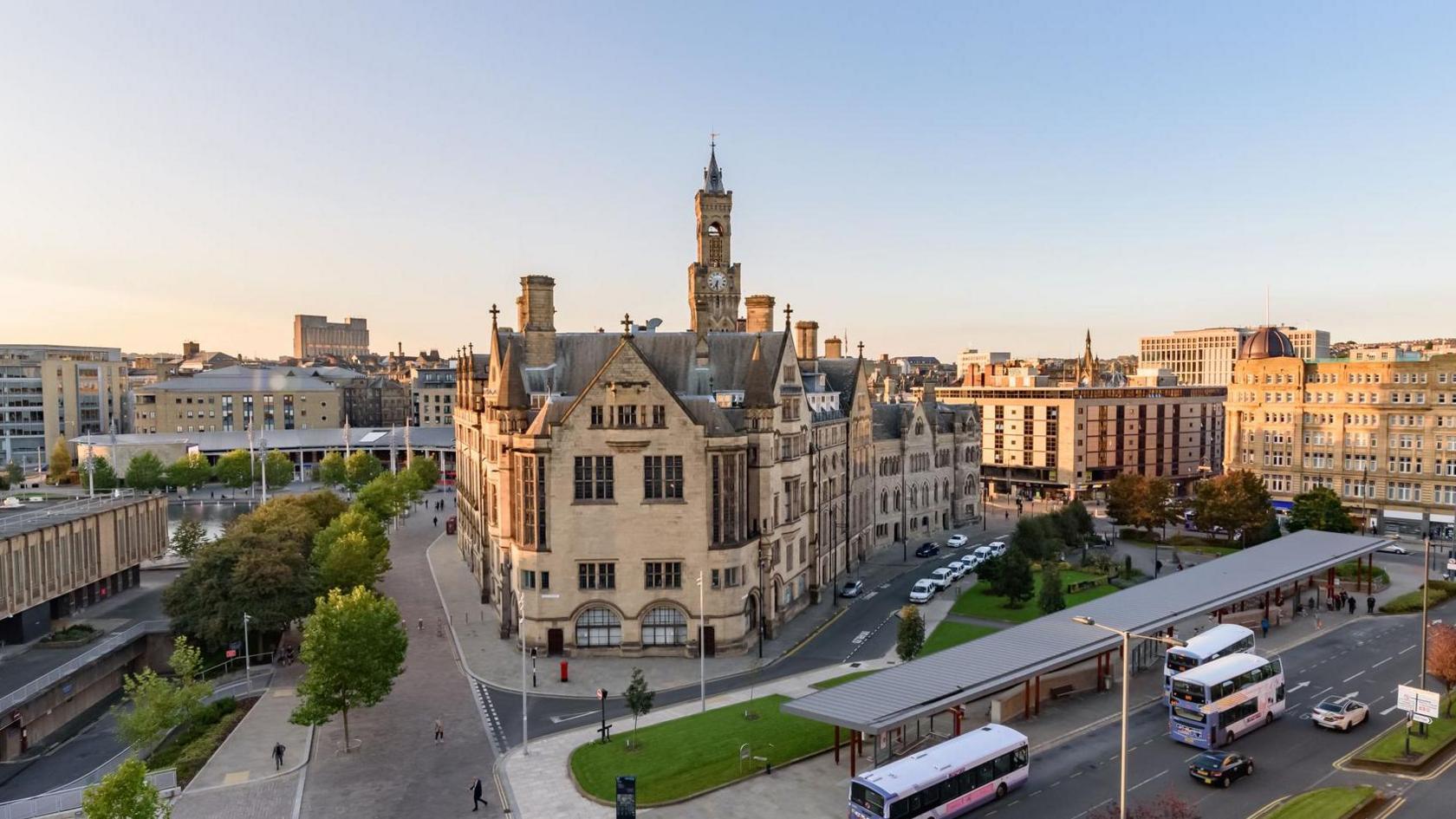
- Published29 July 2024
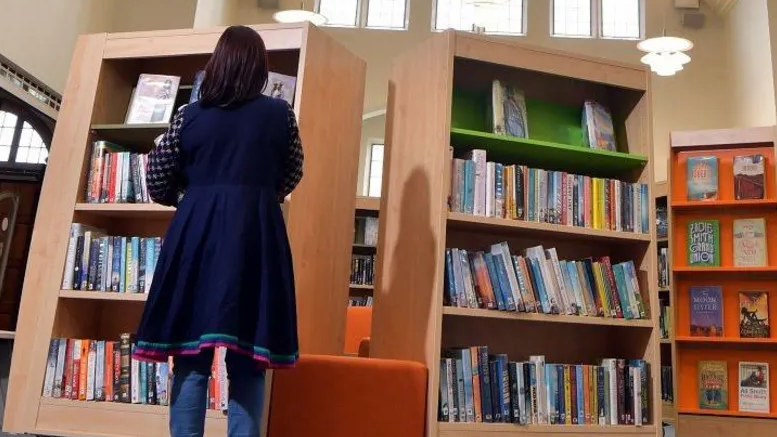
- Published18 July 2024

- Published6 April 2024
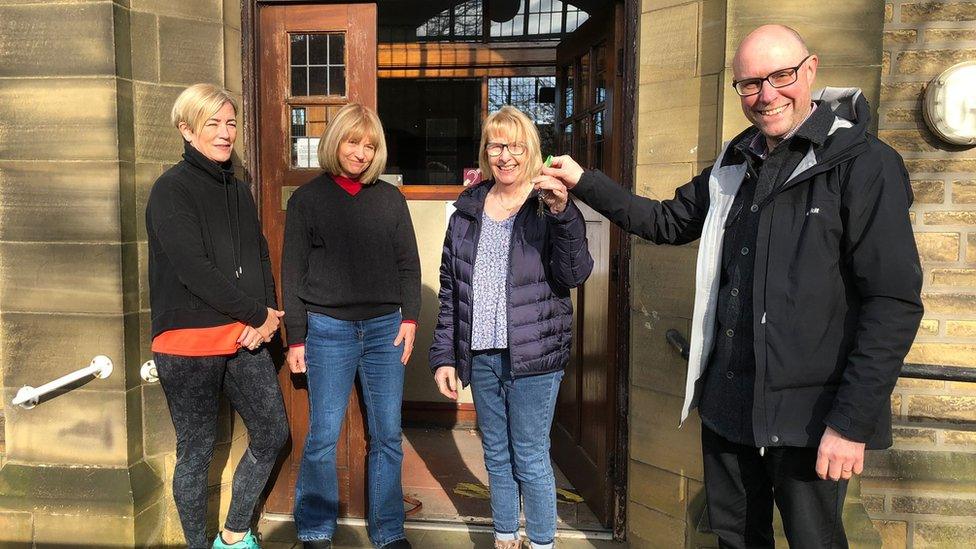
- Published21 February 2024
